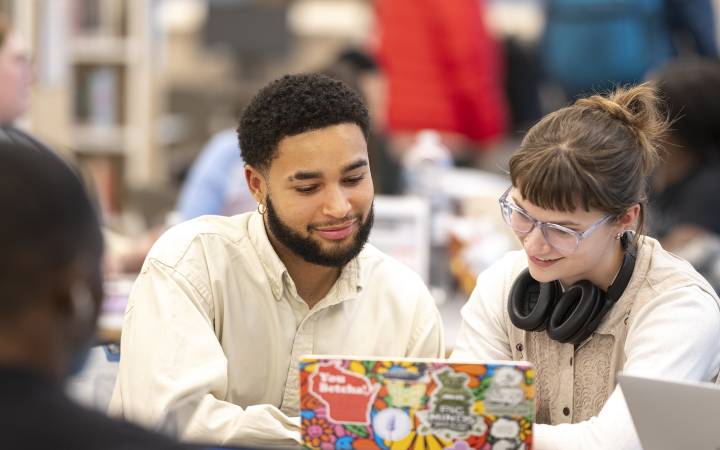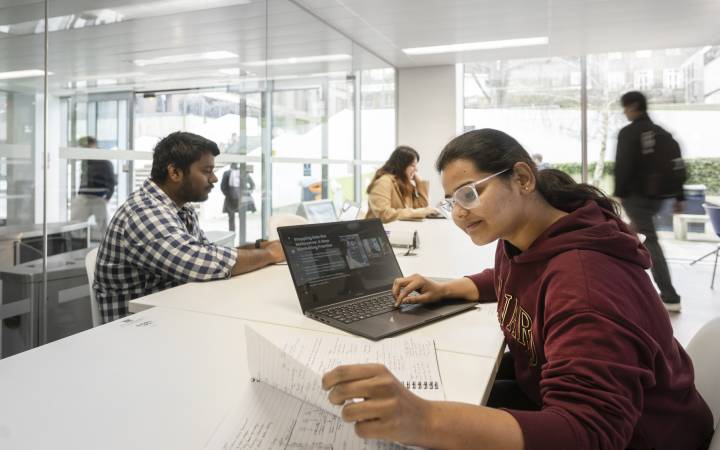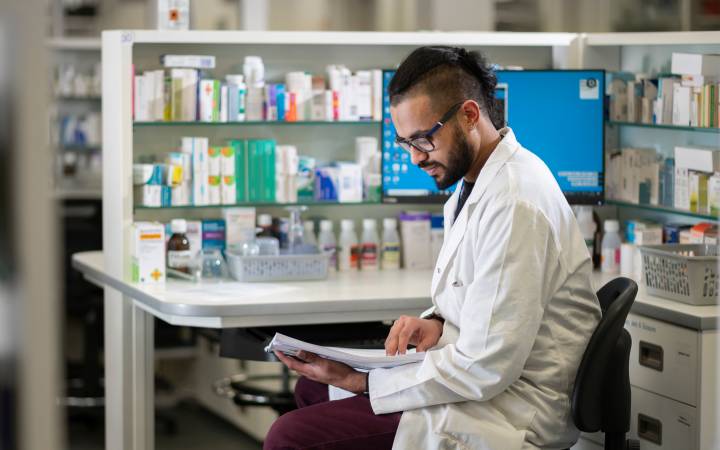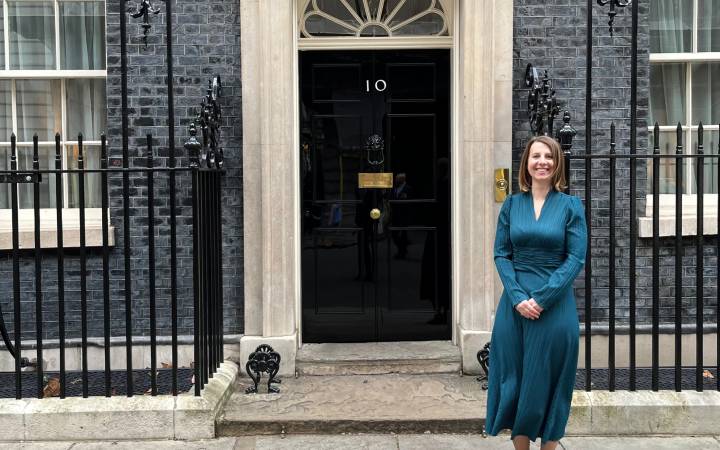Astronaut Helen Sharman and chemist Dame Professor Julia Higgins unveil Kingston University's new state-of-the-art science and technology facilities
Posted Thursday 20 October 2016
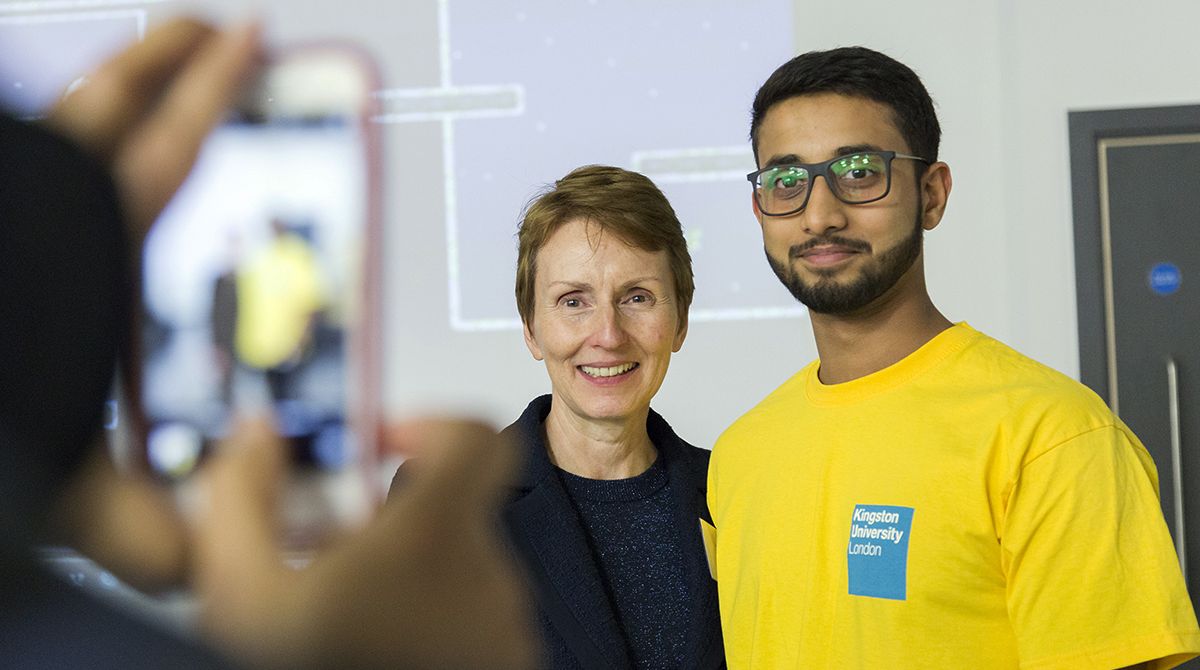 Astronaut Helen Sharman with one of the Kingston University students who helped out at the launch.
Astronaut Helen Sharman with one of the Kingston University students who helped out at the launch.
Giving people of all ages access to cutting-edge science and technology equipment and expertise is one of the most powerful ways of convincing them of its life-changing potential, according to two top British scientists. Dr Helen Sharman and Dame Professor Julia Higgins were at Kingston University to open a new suite of laboratories named in their honour and a public outreach centre – where school children and community groups from across London will be able to explore how pioneering technologies make an impact on people's lives.
Packed with state-of-the-art equipment – including interactive floors, humanoid and patient simulator robots, virtual reality technology and forensic investigations kits – the new facilities are part of a £6.8 million project to encourage people from all backgrounds to get passionate about science, technology, engineering and mathematics (STEM) subjects.
The University's Faculty of Science, Engineering and Computing secured a £1.9 million grant from the Higher Education Funding Council for England (HEFCE) towards the scheme, which comprises two new pharmaceutics and chemistry laboratories, an outreach centre and two mobile labs in a lorry, which will take fun and educational STEM activities into local schools.
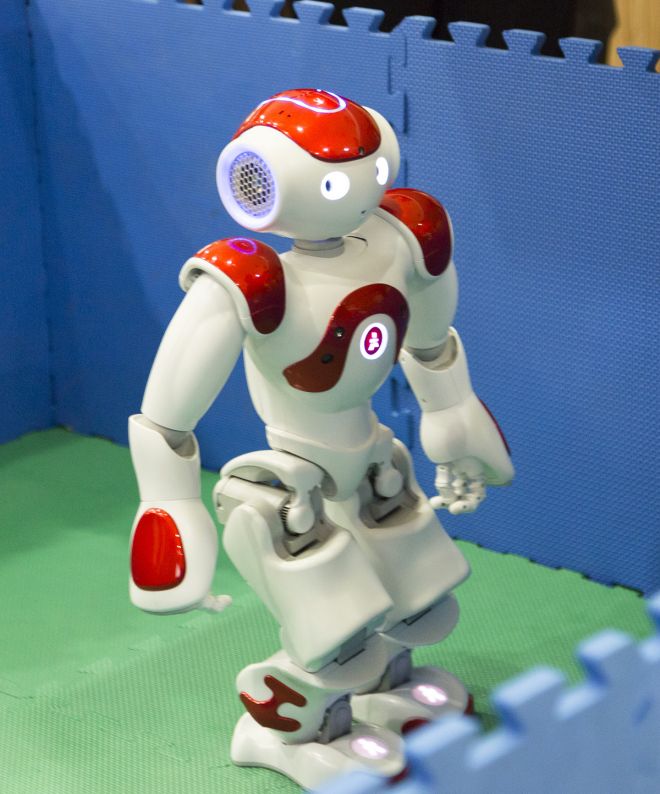 Nao, a humanoid robot used for outreach activities as part of Kingston University's new lab in a lorry project.Dr Sharman – who became the first Briton in space when she visited the Mir space station in 1991 – praised the University for creating a stimulating environment that would inspire the next generation of scientists and engineers. "I chose science because I knew it would open doors for me. Since then it has been my career, the love of my professional life and I couldn't live without it," she said.
Nao, a humanoid robot used for outreach activities as part of Kingston University's new lab in a lorry project.Dr Sharman – who became the first Briton in space when she visited the Mir space station in 1991 – praised the University for creating a stimulating environment that would inspire the next generation of scientists and engineers. "I chose science because I knew it would open doors for me. Since then it has been my career, the love of my professional life and I couldn't live without it," she said.
"While it's great to be able to talk about my experience of space, nothing brings a subject to life, or helps develop the practical skills that industry demands, more than a good laboratory with modern equipment and knowledgeable, experienced staff," she said. Not only had the University worked really hard to secure the funding to build these fantastic new facilities, it was also making sure as many people as possible had access to them, Dr Sharman added.
Vice-Dean of the Faculty Dr Lucy Jones said the project was enabling Kingston University to deliver leading edge science and technology education right in the heart of the community. "This scheme enables us to do really innovative things with our own students and with schools, colleges and community groups," she said. "We are already working with the National STEM Learning Centre and Achieving for Children and have also been approached by the Women's Institute to help them run sessions around the science of baking.
"We can pack our lab in a lorry full of exciting equipment along with enthusiastic and highly-skilled staff and drive it through the gates of primary schools, taking brand new equipment out to areas that wouldn't normally have access to such technology any other way. This way we hope to inspire children from all backgrounds to consider careers as chemists or robotics engineers."
Professor Higgins, a renowned polymer chemist, uses her position to campaign for women to rise to the top in the fields of science and engineering. She said it was particularly significant that the University was involving the whole community in this project. "Everyone can play a role in encouraging young people to believe that science and engineering might be for them. So many think it isn't - so parents, grandparents and other relatives or friends can have a huge influence on the choices they make."
Guests at the launch event at Kingston University's Penrhyn Road campus were given a flavour of the kinds of activities those using the outreach centre and mobile labs would be able to take part in. Participants were able to don virtual reality glasses and go walking with dinosaurs, delve into a crime scene to try out forensic investigation, and even challenge Baxter the robot to a game of Connect 4.
Professor Higgins passionately believes that giving young people the chance to explore, experiment and play with scientific equipment can be transformational. "There's no doubt that showing youngsters what science, engineering and technology is about – and letting them put their hands on things – is the best way of convincing them of how important it is and how it can change people's lives," she said.
- Find out more about studying undergraduate and postgraduate courses in science, technology, engineering and mathematics subjects at Kingston University.
- Find out more about Kingston University's outreach work with schools and colleges.
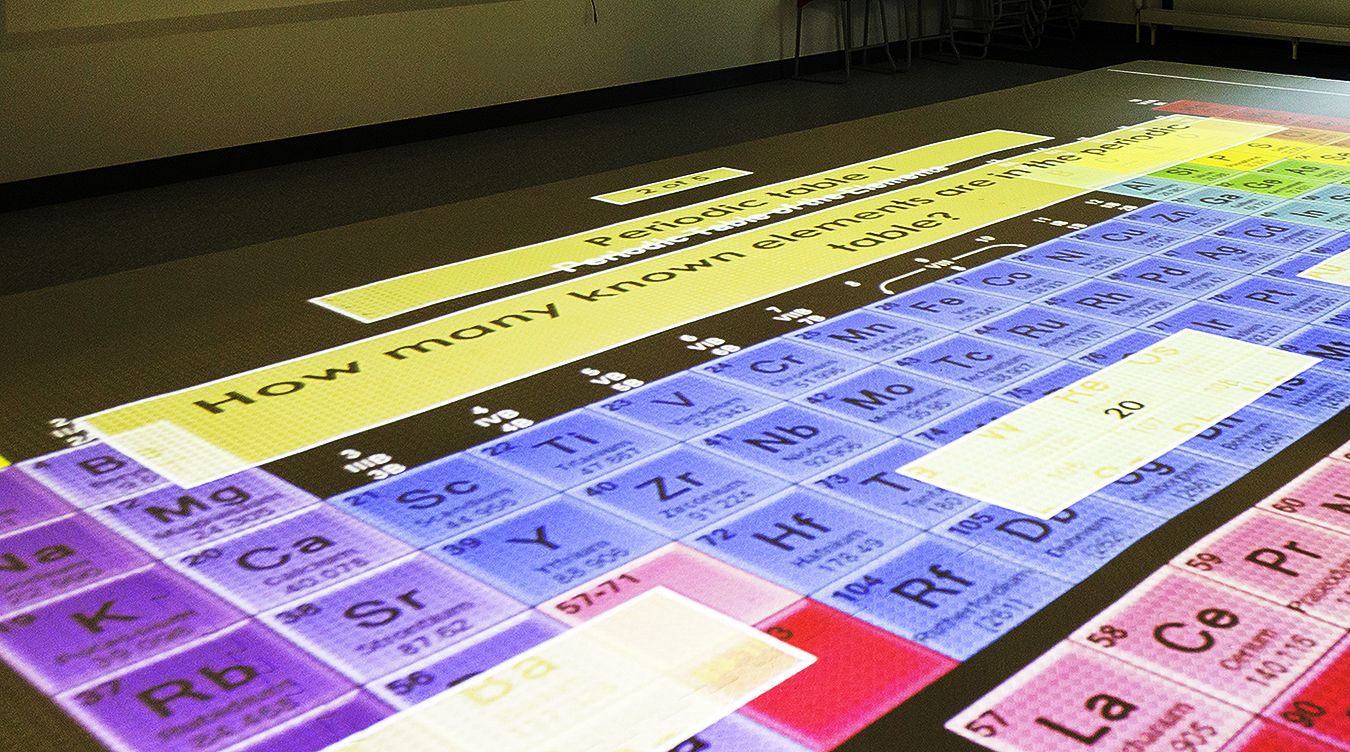 One of the interactive floors in Kingston University's new STEM laboratories.
One of the interactive floors in Kingston University's new STEM laboratories.Contact us
General enquiries:
Journalists only:
- Communications team
Tel: +44 (0)20 8417 3034
Email us
